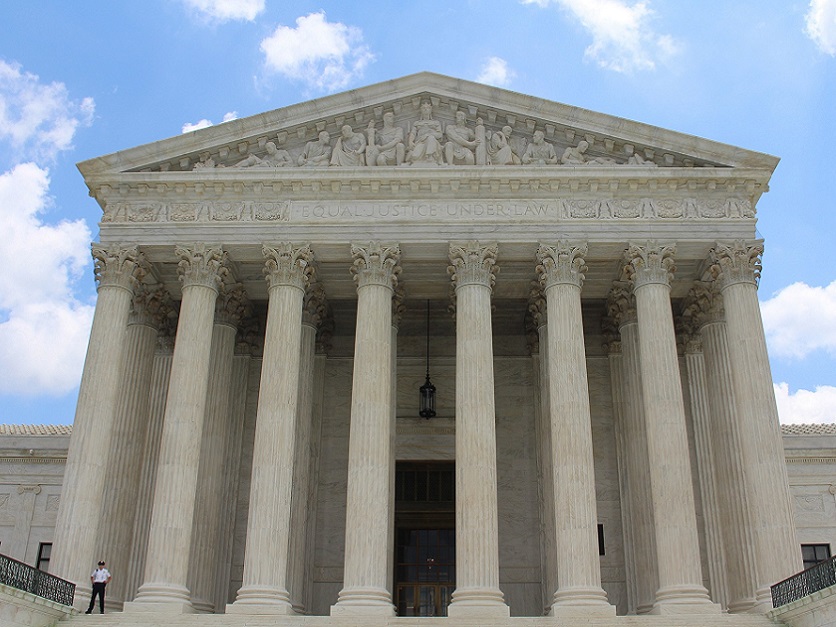The Supreme Court appeared open Wednesday to the idea of dumping, or at least trimming the scope of a 40-year-old legal doctrine that says judges should defer to “reasonable” agency interpretations of statutes in cases where Congress has not been clear enough.
The court has in recent years moved away from reliance on its 1984 Chevron decision in ruling against agency regulations. For example, it used the “major questions doctrine” to rule against EPA in 2022 on the issue of energy generation.
Nevertheless, Solicitor General Elizabeth Prelogar told the justices Wednesday that “thousands of decisions” relying on Chevron to uphold agency action “would be open to challenge.”
“That disruption is especially unwarranted because Congress could modify or overrule the framework at any time,” she said.
On the other side, attorney Roman Martinez argued that use of Chevron unconstitutionally transfers power from Congress, which makes the laws, to the executive branch, which must interpret them. He also tried to persuade the court that its previous decisions relying on Chevron would be unaffected.
The doctrine “encourages agency overreach,” he said.
Two cases were before the court Wednesday, both addressing the issue of whether herring fishing companies should pay part of the cost for government monitors on their vessels. The companies, Relentless Inc. and Loper Bright Enterprises, contend that paying for those monitors eats into their profits. This story is based on arguments in the first case, for which all nine justices were present.
Justice Ketanji Brown Jackson recused herself from the second case, presumably because it came before the D.C. Circuit Court of Appeals while she was a judge there. (She did not participate in the Loper Bright case at that time.)
Deference to federal agency interpretations of law becomes “problematic when it requires the judge to say that the law means X when really, the judge thinks the law means Y,” Martinez said.
But where to draw the line? Justice Elena Kagan asked Martinez whether a court should decide if a product is a drug or a dietary supplement without giving deference to federal agency experts.
Martinez said a court would “bring all traditional tools of construction to bear,” but Kagan said that already occurs using Chevron and that courts are rarely in the situation described by Martinez.
“You want the court to decide that?" Kagan asked. "I would rather have the people at [the Department of Health and Human Services] telling me whether it’s a drug or a dietary supplement.”
It’s easy to be “in the know” about what’s happening in Washington, D.C. Sign up for a FREE month of Agri-Pulse news! Simply click here.
Justice Neil Gorsuch told Prelogar that “a dozen or more circuit court judges” had written to the court asking it to overturn Chevron, and Justice Brett Kavanaugh noted that each time a new administration takes office, laws are reinterpreted, which can lead to “extreme instability.”
Jackson, however, pointed to the potential dangers of having judges with “lifetime appointments” make important policy decisions, and noted that administrations take power after a president has been elected on the basis of a series of campaign pledges.
Prelogar also disagreed with Martinez’s opinion that getting rid of Chevron will not lead to a revisiting of cases decided using Chevron.
“It might be easy for him to say that because he's not going to be involved in the endless litigation that would result if this court were to overrule Chevron,” she said, eliciting chuckles from the audience.
Litigants, however, “will come out of the woodwork to open those decisions,” she said, by focusing on how the statute was interpreted.
Caleb Kruckenberg, an attorney at Pacific Legal Foundation, said after the arguments that it's clear the Supreme Court "comes to bury Chevron deference, not praise it. The only question left is what mischief will remain from its legacy."
The conservative legal group, whose attorneys frequently appear before the court to challenge environmental laws and defend individuals’ property rights, maintains that “agencies routinely use Chevron to claim more power that was never, in fact, given by Congress.”
A decision is expected by June.
For more news, go to www.Agri-Pulse.com


